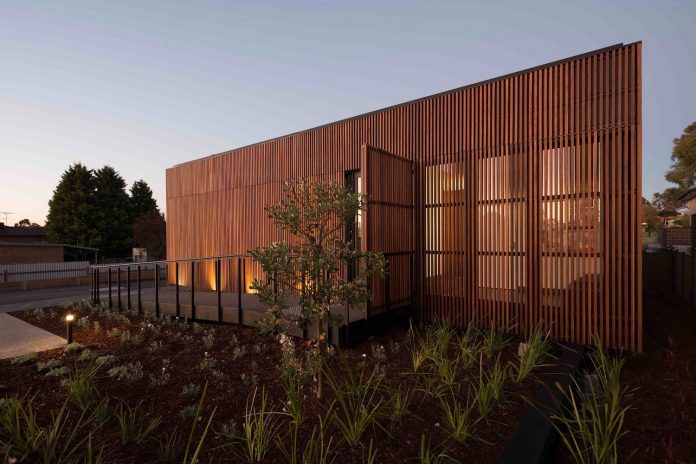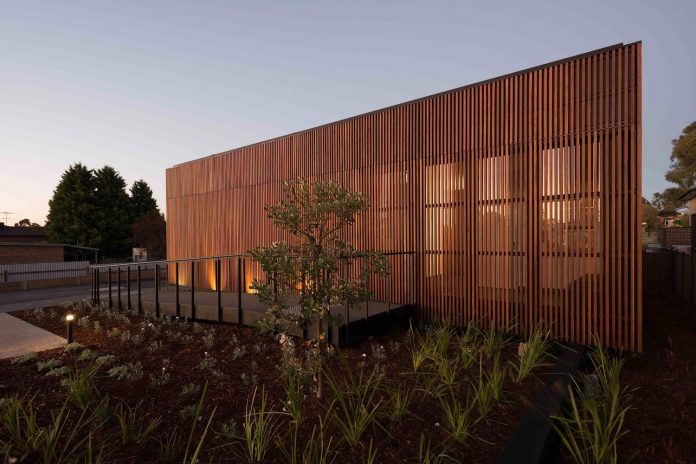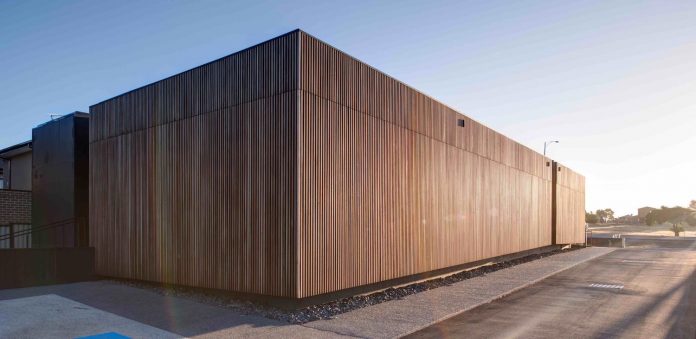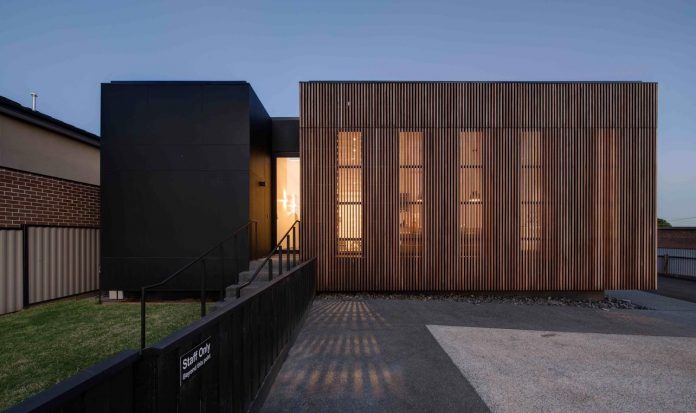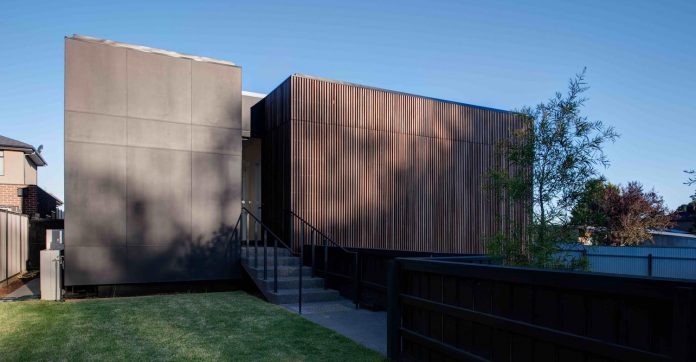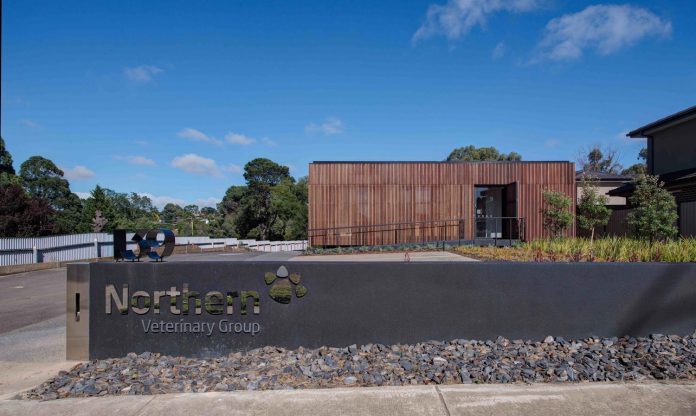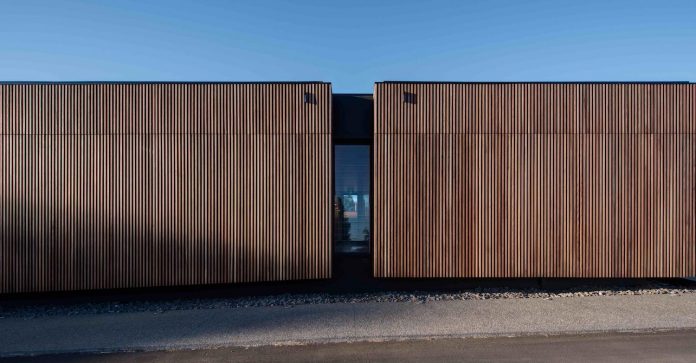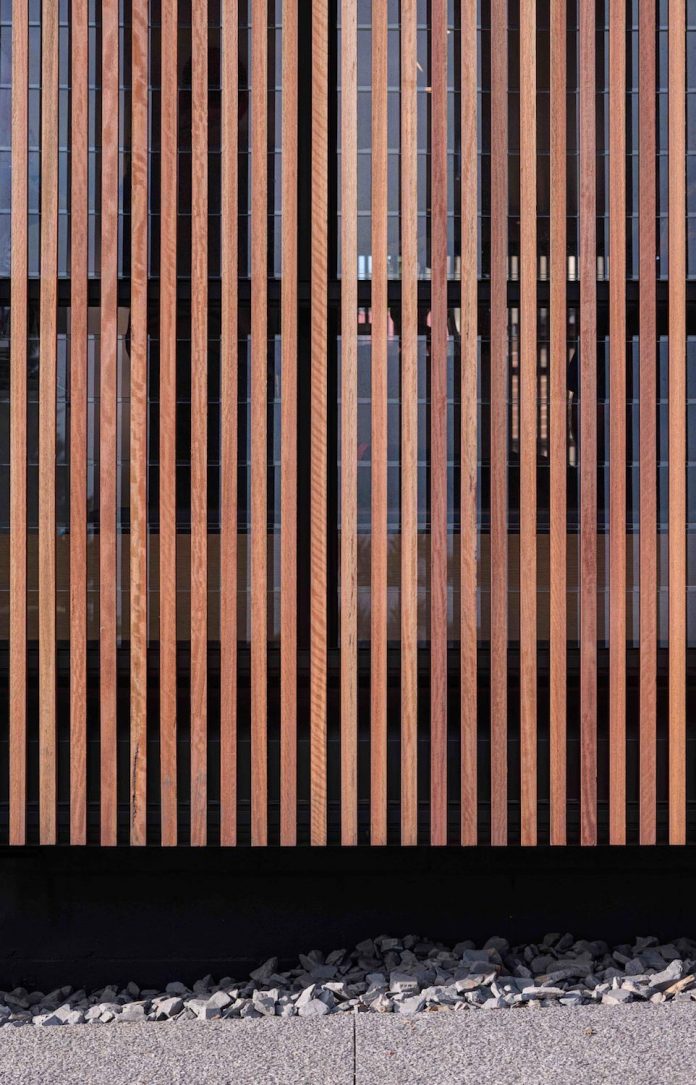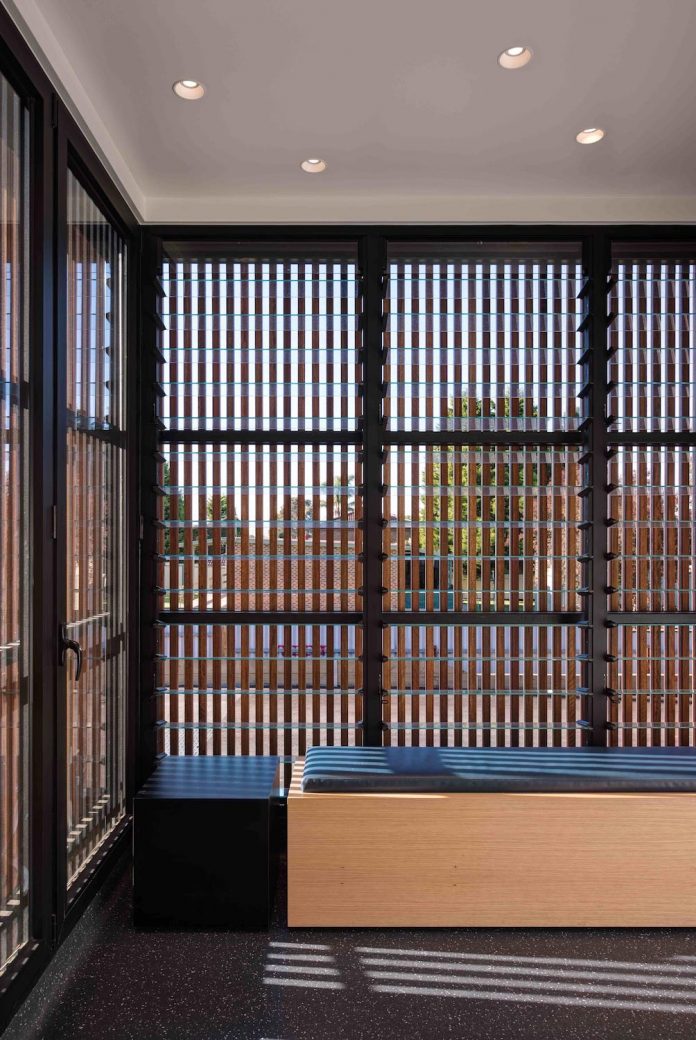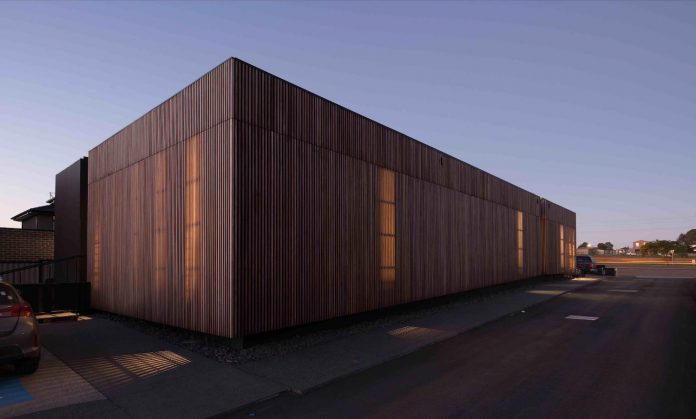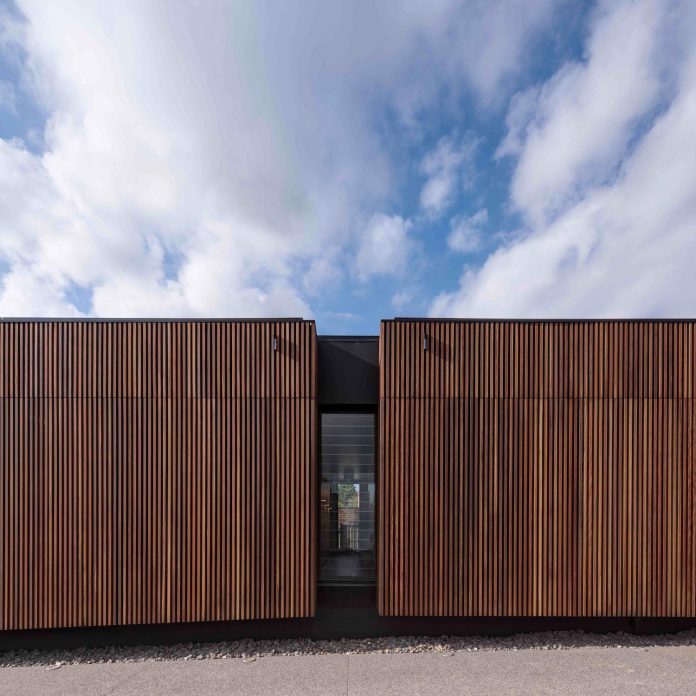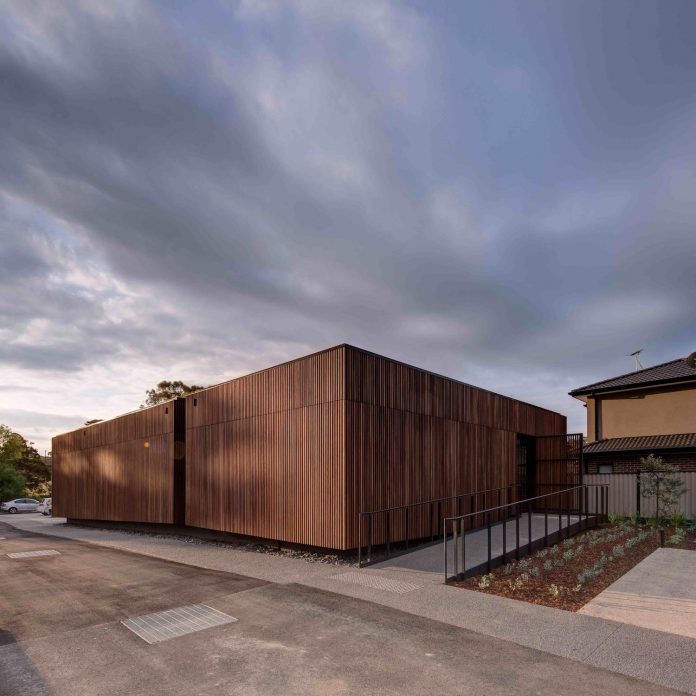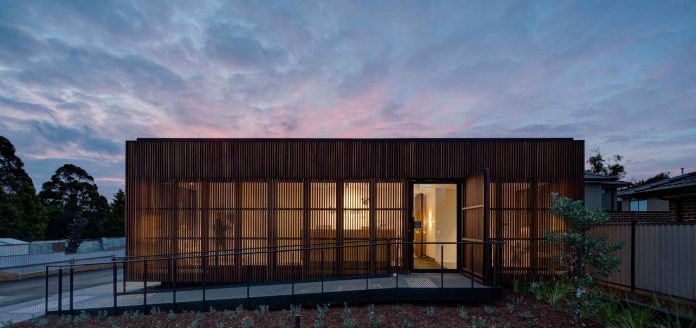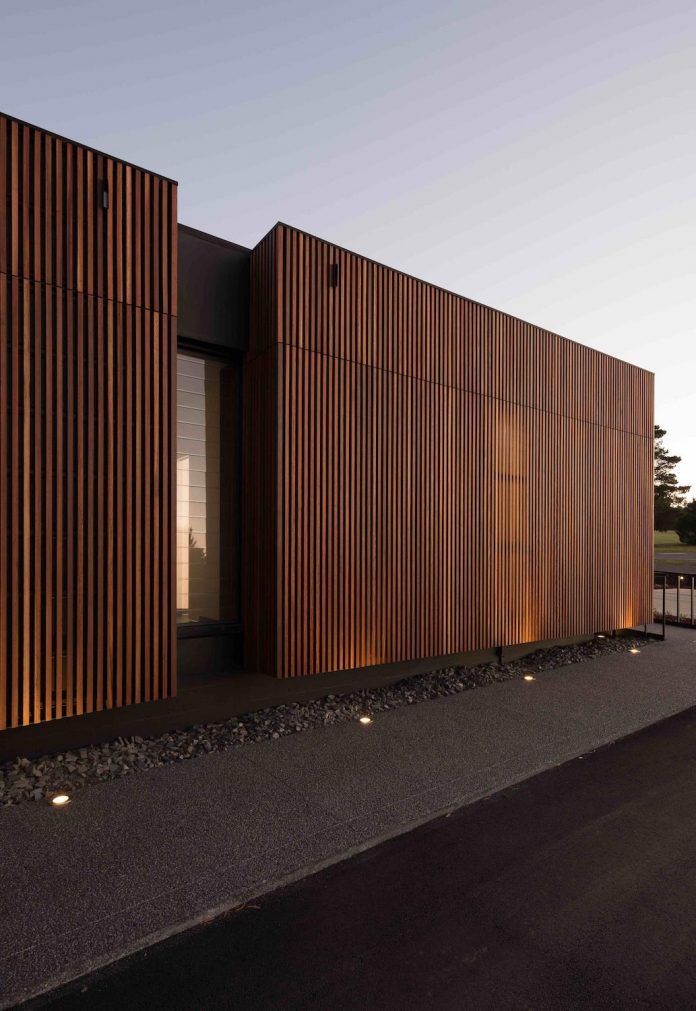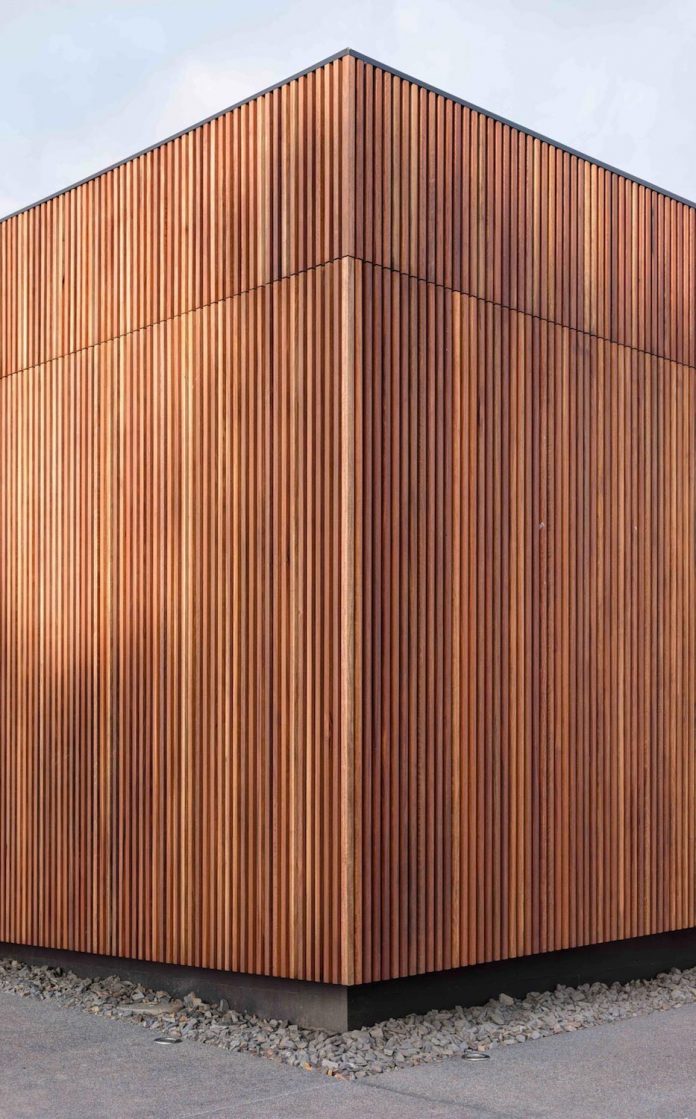Wallan Veterinary Hospital designed to provide a calming and airy interior with a sense of flow and connection between zones
Architects: Crosshatch
Location: Hallam, Australia
Year: 2016
Area: 3.013 ft²/ 280 m²
Photo courtesy: Jaime Diaz-Berrio
Description:
“Wallan Veterinary Hospital in regional Victoria is an efficient and elegant building that successfully refreshes the traditional vet hospital typology. The 24-hour facility, open seven days a week, needed an immediately identifiable, strong street presence, yet still had to be respectful of its residential context.
The client’s brief called for a state-of-the-art facility that comfortably accommodates a range of programmatic requirements as well as addresses the site’s unique constraints. Crosshatch co-founders Jaime Diaz-Berrio and Mark Allan’s solution was to raise the single-level building on a recessive masonry base and set it back from the street. In doing so, they also mitigated flooding issues on a challenging site that slopes down towards a creek at the rear of the property
Three box-like volumes rationalise the plan and reflect the building’s multiple uses. The public zone is located at the front with animal wards to the side. The staff-only and operational areas are the heart of the building and occupy the largest amount of floor space. Each volume breathes with ample cross ventilation allowed by louvred windows and intersecting corridors that gracefully punctuate the double façade.
The result is a calming, airy interior with a sense of flow and connection between zones. Uniformly spaced timber battens wrap the building on the north, east and west elevations and provide effective sunshading
Stylish Spotted Gum cladding visually unifies the building to create a singular cohesive form. This second skin is the facility’s defining feature and also emphasizes the site’s fall, investing the project with a strong connection to place.
At night, the battens soften the interior’s lighting, omitting a warm glow that creates a lantern-like effect and announces the hospital as open. This innovative wayfinding strategy allowed Diaz-Berrio and Allan to eschew the use of traditional signage so as not to disrupt the form’s uniform appearance. As a result, the battens create a veil that oscillates between transparent and solid, with views into the building that open and close depending on the visitor’s approach. It lends the overall project an unexpected sense of dynamism rarely seen in a facility of this type.”
